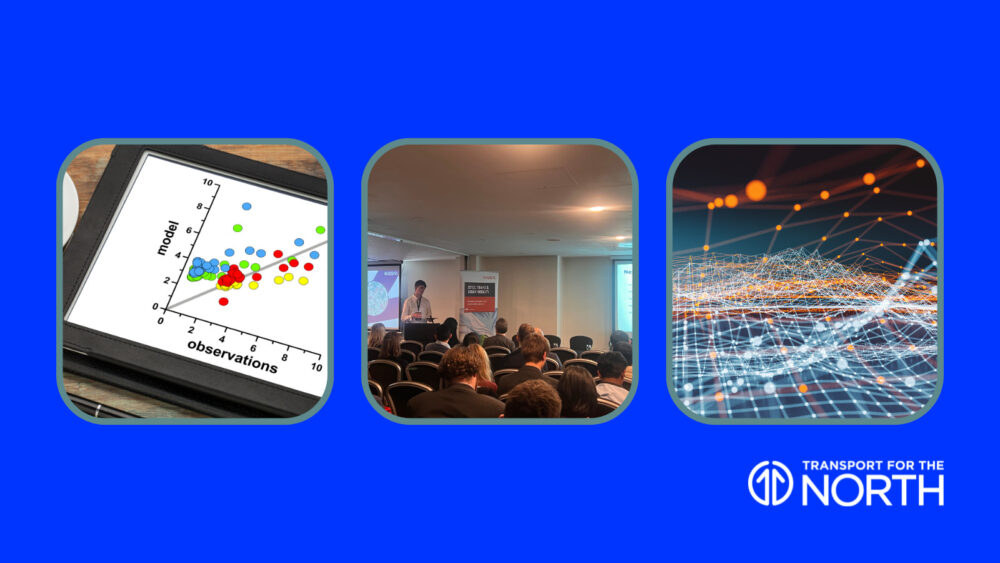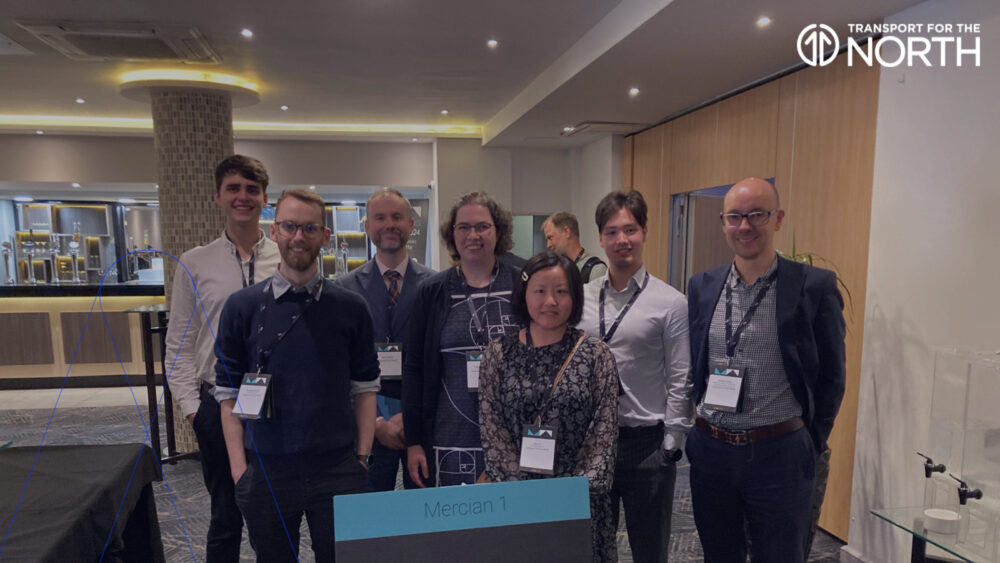
The Modelling World conference in Birmingham was another valuable opportunity for colleagues from our Transport Analysis, Modelling and Economics (TAME) team to dive into the evolving landscape of transport modelling.
Discussions, panels and presentations from leading scientists, researchers and modellers highlighted the intersection of ethics, automation, and innovation in modelling practices within the transport industry were all on the exciting agenda. Here are some key insights from the day…
Ethics in modelling
One of the key themes discussed was the ethical responsibilities that come with creating models. Ethics in modelling is crucial because it ensures that the models we create and use are not only technically accurate but also socially responsible. Ethical considerations help prevent biases and inaccuracies that can lead to unfair or harmful outcomes.
John Bates (independent consultant and on our expert panel) raised a crucial point about the complexity of our new models, and questioned whether adding extra variables and complexities does not necessarily improve the models. Bates questioned this, and believed “less is more”, pointing out that current models may not actually be better than those of the past.
This thought was echoed by Erica Thompson (Professor at UCL) about escaping “Model land” where an example she gave about a meta-analysis paper on climate models showed conflicting outcomes in their results. The discussions made us question whether overcomplicating the models can actually lead to “better modelling”, and to really focus on specific data which would give enhanced results, rather than modelling everything.
Katie Hall’s (Systra) discussion on real time data and the use of personas was refreshing. She emphasized the importance of making models less discriminatory and more reflective of the real-world diversity. By Incorporating real-time data and diverse ‘personas’ (a representation of a type of person), models can be more inclusive, providing better insights and actions. Simon Lusby also highlighted the significant shift of working patterns, explaining that our models will need to change to include this, to accurately capture as many affected groups.
The important ethical discourse throughout the discussion touched on risk and accountability associated with modelling. The question of who bears the responsibility was a clear reminder of the real-world impact that modelling decisions can have, and an important reminder to follow best-practice.
Automating Model Development
One of the morning panels explored the extent at which automation should be integrated into model development, weighing its benefits and drawbacks. Automation promises efficiency and consistency enabling rapid development and deployment. However, how far should we go? Reflecting on past practices, such as manually defining each node (or data point) of a bus route, highlights the significant progress made with technology. Despite the obvious benefits, automation raises concerns about losing human oversight and skills for the next generations.
Bus Service Improvement Plan (BSIP) Tool
A BSIP is a strategic framework designed to enhance the quality, efficiency, and attractiveness of bus services within a specific area or network. It aims to increase public transportation usage, reduce congestion, and improve environmental sustainability by making bus travel more reliable, convenient, and accessible.
A notable presentation was given by our own James Hulse, on the new Bus Service Improvement Plan (BSIP) tool which utilises the Bus Open Data Service (BODS) data to enhance bus modelling and accuracy. The audience was very impressed with the delivery and at the ‘openness’ of the practices within the modelling.
During the panel, James was asked about the blockers, due to the transparent, open-source nature of data at TfN. James also highlighted the clear benefits of using open-source data and transparent practices, which meant better collaboration and innovation, enhanced quality and reliability, accountability but most importantly the technical progress, as a result.
Conclusion
Overall, the Modelling World conference provided attendees with a valuable opportunity to explore cutting-edge technologies, deepen their understanding of current challenges, and reconnect with colleagues from the transport and modelling industries. The discussions and insights gained will undoubtedly contribute to the enhancement of modelling practices both industry-wide and specifically in the North.
